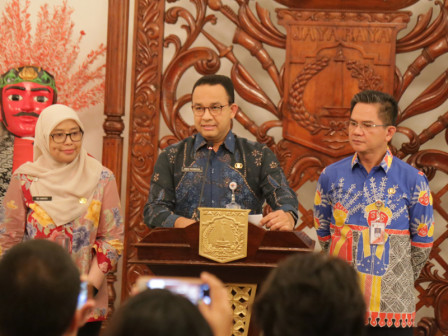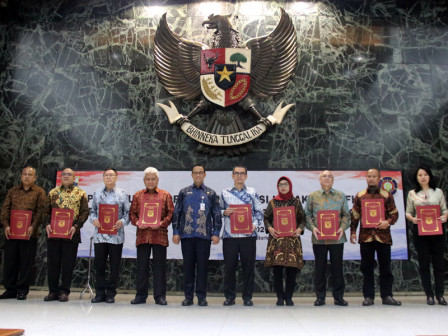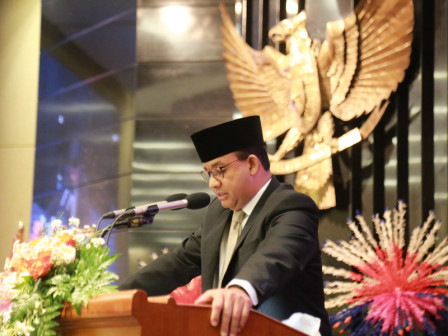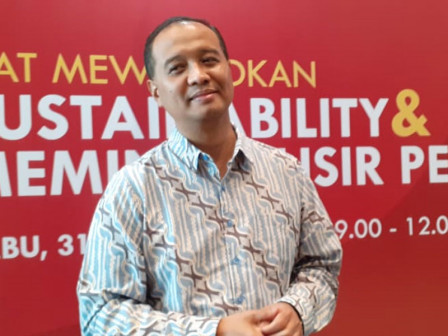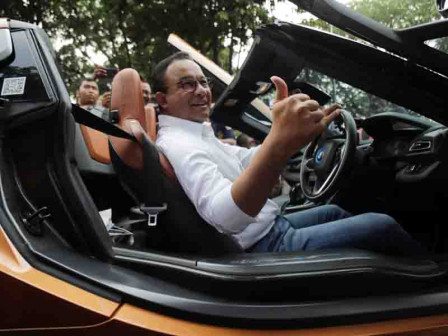Free Vehicle Ownership Transfer Fees (BBN-KB) for Electric Car and Motorcycle in Jakarta
Reported by Folmer | Translated by Maria Inggita
Jakarta Governor, Anies Baswedan, has signed the Gubernatorial Regulation No. 3/2020 about tax incentive policy on Vehicle Ownership Transfer Fee (BBN-KB) for Battery-Based Electric Motorized Vehicles for Road Transportation. Related to this, the people of Jakarta who have or plan to buy electric-based motorized vehicles, both two-wheeled and four-wheeled, can get BBN-KB tax exemption incentives.
It means, starting 2020, trading activities, exchanges, grants, inheritance of electric-based motor vehicles, both four-wheeled and two-wheeled vehicles, are given exemption from transfer fees tax
"Today I announce the Gubernatorial Regulation Number 3/2020 about tax incentive on vehicle ownership transfer fee for battery-based electric motorized vehicles for road transportation. Jakarta Provincial Government becomes the first provincial government to issue this BBN-KB exemption regulation. It means, starting 2020, trading activities, exchanges, grants, inheritance of electric-based motor vehicles, both four-wheeled and two-wheeled vehicles, are given exemption from transfer fees tax," said Governor Anies during press conference at Balairung, Jakarta City Hall, Thursday (1/23).
The policy is applied for private and public vehicles. It is for electric vehicle only. "Battery-based electric motorized vehicles are vehicles that are driven by electric motors and get electricity supply from batteries, both from their vehicles and from outside. And this policy does not apply to types of Hybrid vehicles or semi-electric vehicles. Only for motorized vehicles that use 100 percent of battery-based electricity," Governor Anies added.
11 Onthel Taxi Drivers in Kota Tua Receive Electric Bike AidThus, Jakarta Province becomes the first province to issue regulations on the vehicle ownership transfer fee for battery-based electric motorized vehicles for road transportation in which the policy is written under Gubernatorial Regulation (Pergub) No. 3/2020. The policy is valid from January 15, 2020 until December 31, 2024 or five years ahead.
The Gubernatorial Regulation (Pergub) No. 3/2020 also assists Central Government realizing target accordance to Presidential Regulation (Perpres) No. 55/2019. This Pergub takes part in supporting, regulating and controlling air quality in Jakarta.
"This policy is a follow up from 7 (seven) Initiatives for Jakarta Clean Air under Gubernatorial Instruction (Ingub) No. 66/2019. We hope that this is one of the initiatives to encourage the use of emission-free vehicles in Jakarta to be able to run well. This is the authority at the Regional Government level and that is what we are giving. Hopefully this will be responded positively and we believe this is part of the endeavor, making Jakarta better and healthier, as well as the public getting economic benefits from this policy," Governor Anies closed.
As for information, the incentive/exemption of local taxes is provided automatically in the Regional Tax Collection Agency of the DKI Jakarta Province. Electric vehicle users can use this regional tax incentive facility in the offices of the Motor Vehicle Tax Collection Service or SAMSAT offices spread across five administrative cities in Jakarta.
The Gubernatorial Regulation (Pergub) No. 3/2020 is a follow up to the provisions of Article 17 act (1) and act (2) of Presidential Regulation No. 55/2019 concerning the Acceleration of Battery-Based Electric Vehicle for Transportation. In Presidential Regulation No. 55/2019, the government targets the development of electric cars to reach 2,200 units, hybrid 711,000 hybrid units and 2.1 million units of electric motorcycles by 2025.
The central government has also arranged a Sales Tax on Luxury Goods scheme for motor vehicles in Indonesia, which is officially issued in Government Regulation (PP) No. 73/2019 about Taxable Goods classified as Luxury in the form of Motorized Vehicles that are subjected to PPnBM. The regulation stipulates, for pure electric cars with a carrying capacity of less than 10 people and 10-15 people including drivers, a PPnBM rate of 15 percent is imposed on a tax basis of 0 percent of the selling price. The 15 percent PPnBM tariff rule on the basis of a zero percent tax from the sale price is given for Plug-In Hybrid Electric Vehicles, Battery Electric Vehicles and Fuel Cell Electric Vehicles.

